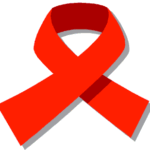 Zinc is critical for immune function. However, zinc deficiency occurs in more than 50% of HIV-infected adults.
Zinc is critical for immune function. However, zinc deficiency occurs in more than 50% of HIV-infected adults.
Researchers at Florida International University examined the effects of long-term zinc supplementation in relation to HIV disease.
First, the details.
- 231 HIV-infected adults with low zinc blood levels (less than 0.75 mg/L) were randomly assigned to a treatment group for 18 months.
- Zinc (12 mg of elemental zinc for women and 15 mg for men)
- Placebo
- Immunological response was measured.
- In addition, HIV viral load and CD4(+) cell count (used to assess the immune system) were determined.
- Questionnaires, pill counts, and blood zinc and C-reactive protein (measure of inflammation) levels were used to monitor adherence to study supplements and antiretroviral therapy.
And, the results.
- Patients who took zinc supplementation for 18 months had a 4-fold reduction in the likelihood of immunological failure, even after accounting for confounding variables — a significant difference.
- Zinc supplementation also reduced the rate of diarrhea by more than half vs placebo — a significant difference.
- There was no difference in mortality between the groups.
The bottom line?
The authors concluded, “This evidence supports the use of zinc supplementation as an adjunct therapy for HIV-infected adult cohorts with poor viral control.”
The roles of zinc and other micronutrients have been an ongoing subject of research at Florida International University. Earlier study results are available here.
10/24/10 19:19 JR